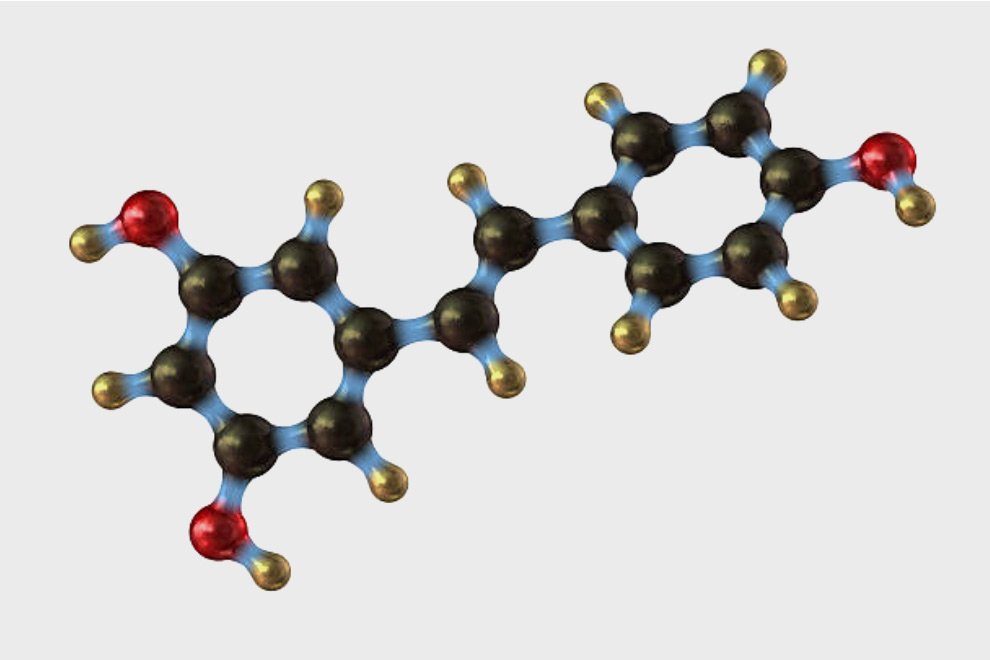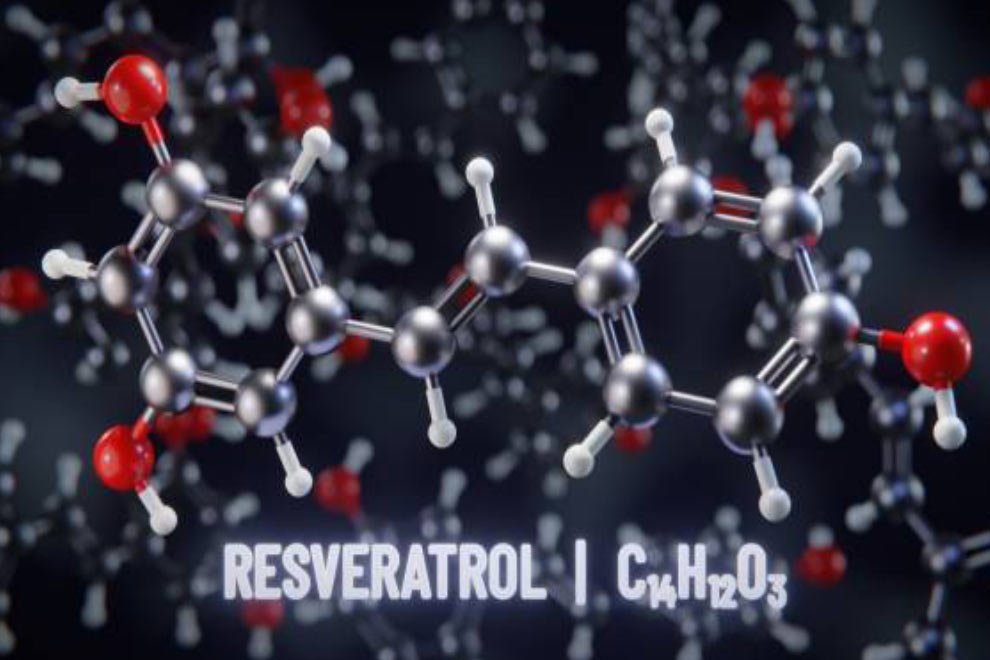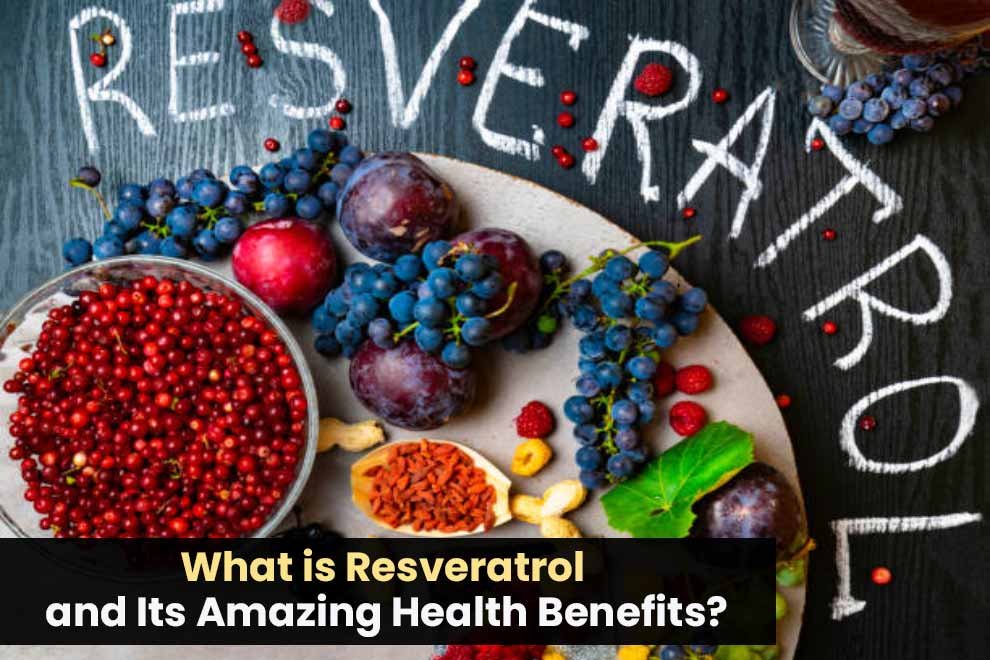Resveratrol is a term that has been in the news lately concerning health and longevity. It is probably familiar to you from discussions about red wine and its potential health blessings. But what’s resveratrol, and why is it so good for you? In this piece, we will delve further into the area of resveratrol, inspecting its history, health blessings, and the charming research surrounding it.
What is Resveratrol Exactly?
One plant compound with antioxidant properties is resveratrol. It is present in many foods, including peanuts, berries, grapes, and red wine. Several health companies have also raised the ante by offering resveratrol powder.
Red wines include much of this molecule because it is concentrated in the skins and seeds of berries and grapes. Research shows it might offer advantages such as improved heart health, cancer prevention, anti-aging, and metabolism support. Animal research has yielded encouraging results, although little human research has been conducted.
But what possible health advantages can resveratrol offer?

Possible Health Benefits of Resveratrol
1. Extension of Animal Lifespan
Research shows that resveratrol functions by turning on particular genes that reduce the effects of aging. Calorie restriction has also been linked to this type of gene expression and has been proven to extend the lifespan of certain animals. Studies have shown that supplementing with resveratrol prolongs life in several animal models.
It’s unclear, though, if this holds for people. Resveratrol lengthened life expectancy in 60% of the organisms that were examined, per a 2015 review. Even though fish and worms have a lower genetic similarity to humans than other mammals, their impacts were most pronounced in these animals.
The research looks promising, even if it is still in its early stages. It is uncertain how resveratrol affects human longevity, and more studies are required to validate these potential benefits. Still, something is alluring about the idea that a red wine molecule can extend our lives.
2. May Regulate Blood Pressure
Some fascinating hypotheses regarding the effect of resveratrol on blood pressure are emerging from recent studies. They suggest that adding resveratrol to your daily regimen could lower your blood systolic pressure while not influencing your diastolic blood pressure. Again, polyphenolic compounds found in red wines—known for their high resveratrol content—have antioxidant properties that might improve your general health.
Although this prior research is promising, much more must be discovered about resveratrol’s effects on our hormones and metabolism. Not every detail is known with certainty. Also, there is much more to understand about the many polyphenols in red wines and their long-term effects on human health.
The critical thing to remember about this is that more research is being conducted and is being monitored. If we keep researching and examining the effects of resveratrol, we will have a greater knowledge of how it might help regulate blood pressure.

3. May Reduce Inflammation
The primary cause of many chronic illnesses, including cancer and rheumatoid arthritis, is inflammation. Studies on the anti-inflammatory effects of resveratrol have produced encouraging results. It might help lower the body’s expression of inflammatory markers, reducing the risk of inflammatory disorders.
Certain studies suggest resveratrol can inhibit the synthesis of certain inflammatory molecules and even prevent nuclear factor-kappa B (NF-B), an essential component of the inflammatory response, from being activated. Therefore, resveratrol is a desirable target for upcoming studies on managing and avoiding inflammatory illnesses.
4. May Prevent Cancer
Many people have fearful associations with the word “cancer.” It’s exciting to think that a chemical found in red wine and grapes may help prevent cancer. Resveratrol may prevent cancer, according to a study.
Resveratrol has been shown in animal and cell culture experiments to inhibit the growth of many cancer cells, including those linked to lung, prostate, and breast malignancies. Its anti-inflammatory and antioxidant properties are assumed to play a part in its positive effects.
Still, prudence must be exercised going forward in these findings. Although research conducted in labs and on animals is promising, human clinical studies are necessary to validate these benefits in combating cancer. It is a caution that positive results in the lab do not always translate to improved human health.
5. May Protect the Brain
Resveratrol has been found to offer significant protection to the brain from age-related cognitive decline. Studies have shown that it can slow down the formation of plaques in Alzheimer’s disease and provide antioxidant and anti-inflammatory benefits. It is believed that resveratrol may trigger a chain reaction of events within the body, which helps protect brain cells from damage.
There are questions, however, about how effectively the human body can use resveratrol for supplemental purposes to protect the brain from harm. Despite this, resveratrol remains a promising compound with a strong potential to reduce cognitive decline and protect against neuron damage.

Note of Caution
You must cautiously proceed before you run out to get as many resveratrol pills as possible at the health food store or wine shop. Although the research is fascinating, it has yet to be ready to take the role of tried-and-true health practices like eating a balanced diet, exercising frequently, and getting regular checkups from the doctor.
Consult a healthcare professional before adding resveratrol supplements to your routine, particularly if you use medicines or have underlying health issues. Drugs and supplements may interact and have unintended negative consequences.
Conclusion
One molecule that could have positive health outcomes is resveratrol. Some examples are reducing blood pressure, preventing most cancers, and anti-aging. Even though this appears reasonable, extra research is required to confirm the compound’s superiority completely.
Also Read: 9 Royal Jelly Benefits: Boost Your Health and Beauty











